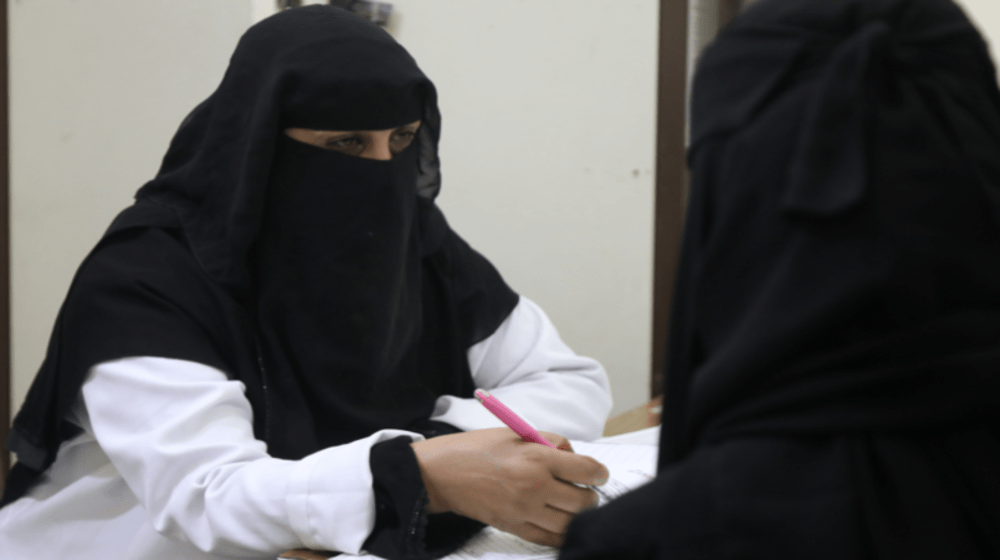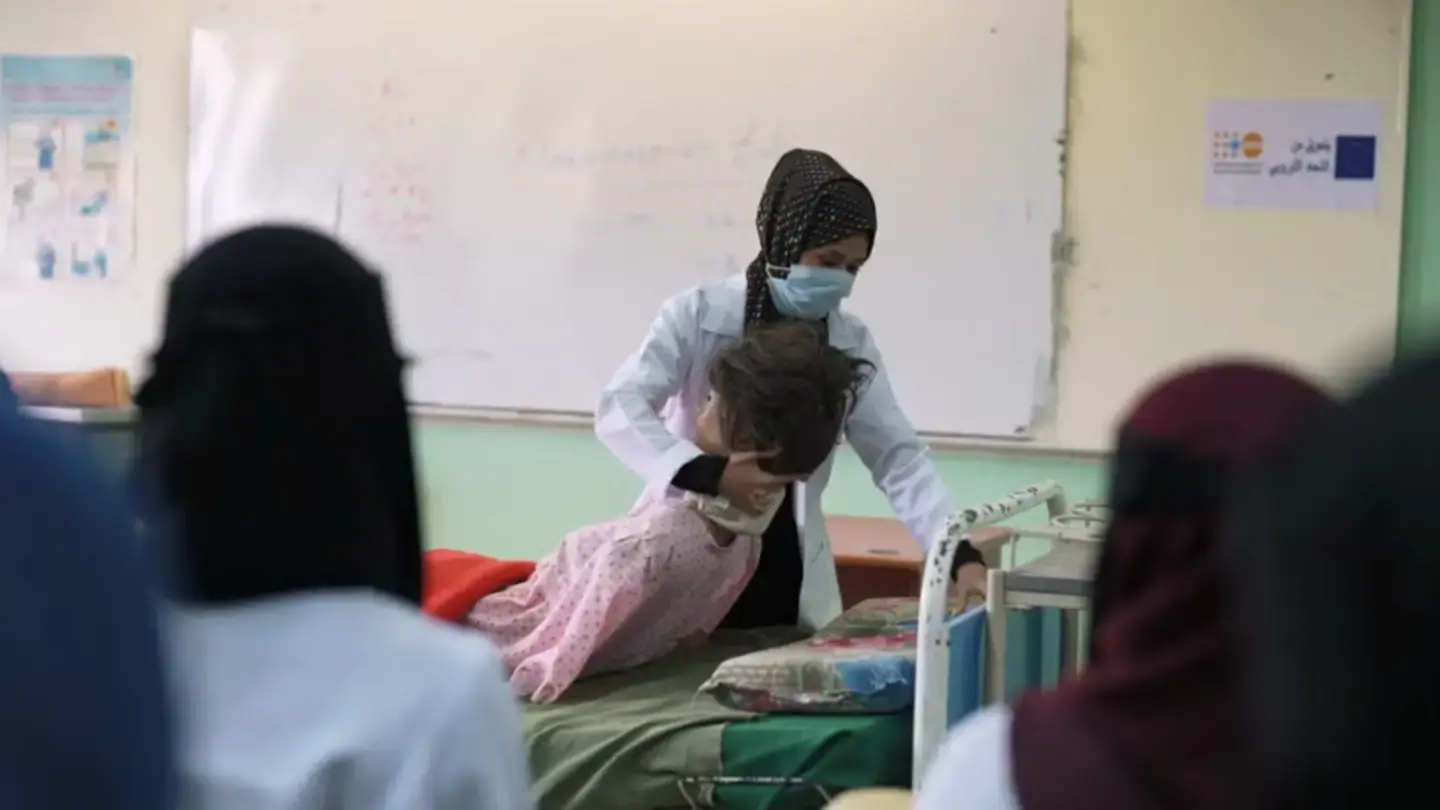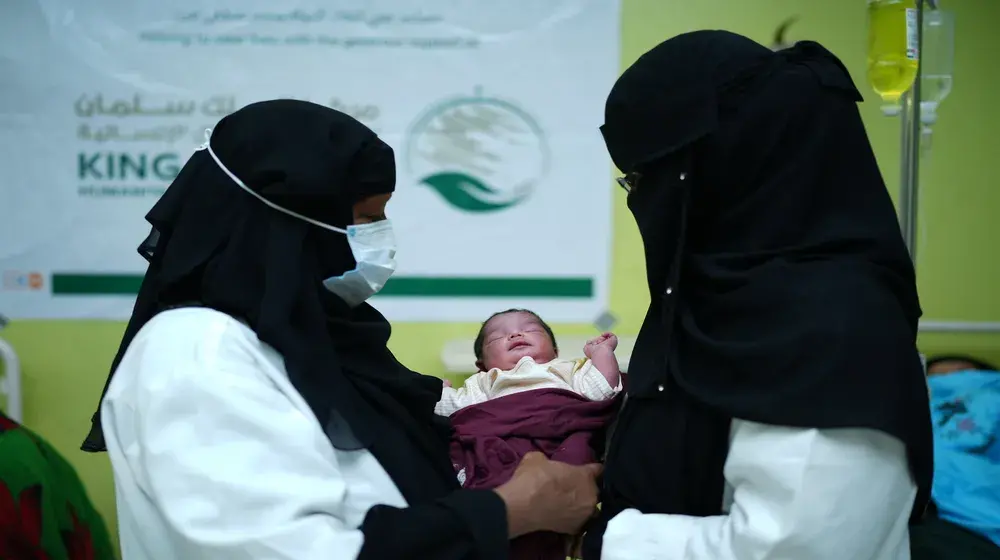"You’re a fighter, Sayun," the nurse whispered into my ear. "We’re with you. You won't give up, will you?"
Sayun, 35, lives with her husband and two children in the remote Yemeni governorate of Sa’ada.
“It was a scorching hot day, and I was carrying a heavy bucket of water when labour started,” Sayun explains.
“My family called the local midwife but hours of excruciating pain yielded no progress, and when the severe bleeding started we were all shocked and scared.”
Sayun’s baby was in breech and was at severe risk of suffocation.
“My husband arranged a car, and we made the bumpy three-hour journey to the Republican Hospital in Sada’a.
“When we finally arrived. I heard the doctor's worried voice, ‘We must try,’ he said, and then I lost consciousness and everything went dark.”
Lifesaving care:
“I woke up confused and exhausted, but I felt a hand holding mine, ‘Are you okay Sayun?,’ the attending physician said. ‘We saved you and your child.’"
“A mix of emotions swirled inside me,” Sayun continues. “A mix of lingering despair and newfound hope, and I fell into a deep sleep that stretched into the next day.”
“The hospital staff saved my life but it was much more than clinical expertise. Gentle hands wiped away my tears and kind words spoken in my native tongue soothed my soul.”
"The thought of her dying did cross my mind," says Dr Mayada Ali, who treated Sayun. “Each breath was a struggle, and the pain... words can’t describe it."
"UNFPA has been instrumental in providing us with vital supplies, medicines, and training,” says Dr Iman at the Republican hospital.
“Stories like Sayun's might end in tragedy without their support.”
Urgent need:
Since January 2024, more than 9000 people have received reproductive health services in Sa’ada governorate through UNFPA support, and over 284,000 have been reached in Yemen, with funding from the UN Central Emergency Response Fund and other donors.
Yet after more than eight years of conflict, a huge gap remains in the critical care that pregnant women in Yemen urgently need.
“I live in an area without even basic health services,” Sayun says. “For women in rural areas, hospitals are unreachable luxuries. They’re too far away to reach and too expensive to use.”
UNFPA aims to provide emergency obstetric care to over 1.2 million women in Yemen in 2024. Yet this target falls far short of the 2.7 million expected births in the country this year.
"UNFPA serves as a lifeline for women like Sayun in Yemen's most vulnerable areas. We collaborate with partners to strengthen the healthcare system and ensure women have access to skilled birth attendants and emergency obstetric care. Yet the needs are immense,” says Enshrah Ahmed, UNFPA Representative in Yemen.
“Millions of women still lack access to even basic healthcare services, and the ongoing conflict exacerbates the situation. Urgent funding is required to sustain our life-saving work.”





